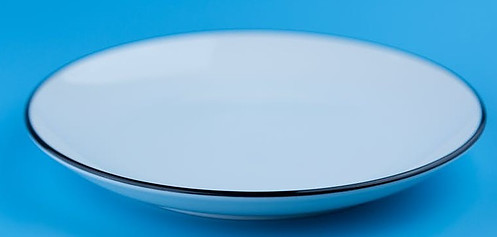The latest diet craze seems to be the keto diet and if you’ve frequented the keto diet groups, you may have noticed a buzz about intermittent fasting. People are hailing it as the greatest thing ever. Why is intermittent fasting so wonderful? What’s up with that?
What is Intermittent Fasting?
Intermittent fasting is a pattern of eating where you take a break from foods for a period of time. You alternate between eating and fasting. Intermittent fasting does not prescribe what types of foods that you should eat, but it does let you know when to eat. 
There are many different ways to do intermittent fasting. Some people rely fast every day for a sixteen hour period. They have an eight hour window where they will consume all of their calories and then give their body a break from digestion. Other people will take a full 24 hours of fasting a week. The majority of people already fast every night while they sleep. Intermittent fasting can be as simple as extending that fast by skipping a meal, either breakfast or dinner. When you do that, you are techinically fasting for sixteen hours. This is the most popular type of intermittent fasting. It is often referred to as the 16/8 method.
Initially, it may sound challenging, but intermittent fasting can be fairly easy to do. People often report feeling better and having more energy during a fast. Hunger does not become a big issue. It can be challenging initially when your body is getting used to not eating for extended periods.
During a fast, you should refrain from foods. You can consume water. Some people will still include low-calorie foods and beverages, such as tea and coffee during the fasting period.
<<Check out my review of Brad Pilon’s Eat Stop Eat intermittent fasting program.>>
What is the Keto Diet?
The Keto diet, also known as the ketogenic diet, is a low carbohydrate and high fat diet. It was initially prescribed for people who have epilepsy to control their seizures. However, the benefits of the ketogenic diet are far reaching. Many people are using the keto diet for weight loss and having wonderful results.
By restricting carbohydrates, the body starts to burn fats and create ketones. Ketosis is a natural state of the body that helps it survive when food intake is low. During ketosis, ketones are produced from the breakdown of fats in the liver.
The goal of a properly maintained keto diet is to get your body to the metabolic state known as ketosis. We do this through the starvation of carbohydrates, but not calories. 
Our bodies are designed to adapt to whatever you put into them. As you overload your body with fats and take away carbohydrates, it begins to burn ketones as the primary energy source. Optimal ketone levels offer many health, weight loss, physical and mental performance benefits.
Satiation and the Ketogenic Diet
As the body goes into ketosis, it becomes what is known as “fat adapted.” This means that the body’s running on fats. When the body is running on carbohydrates, it tends to burn through them quickly, leaving you hungry after a few minutes or hours. However, once your body has reached the metabolic state of ketosis, it will rely on fats as a fuel source.
When your body is running on fats as a fuel source, it doesn’t tend to be as hungry. You feel satiated much longer than when your body is running on carbohydrates for fuel. This is because carbohydrates tend to be a quick source of energy, while fats are a slower burning type of energy.
While it isn’t clearly understood why the ketogenic diet is satiating when it comes to hunger, it is one of the benefits of the ketogenic diet. According to a study published in the American Journal of Nutrition in 2008, it was shown that low-carbohydrate ketogenic diets reduce hunger and lower food intake significantly more than do high-protein, medium-carbohydrate nonketogenic diets.The study compared the impact of a ketogenic diet to a moderate carbohydrate diet on seventeen obese men over a four week period of time. Energy intakes were greater with low carbohydrate and weight loss was significantly greater with the low carbohydrate ketogenic diet.
Health Benefits of Intermittent Fasting
There are many body changes that occur when we don’t eat for awhile. Hormones, genes and important cellular repair processes are triggered. When fasted, we can get significant reductions in insulin levels and blood sugars, as well as an increase in human growth hormones.
Many people use intermittent fasting because it aids in weight loss. It is a very simple and effective way to restrict calories and burn fat.
Intermittent fasting also has metabolic helath benefits. It can improve the risk factors and health markers.
Some studies have shown that intermittent fasting can help you live longer.
Intermittent fasting helps to protect against diseases as well. You can ward off heart disease, type 2 diabetes, cancer and Alzheimer’s disease with intermittent fasting.
Health Benefits of the Ketogenic Diet
The ketogenic diet has show to decrease inflammation, which helps a whole host of health related problems including acne, arthritis, eczema, psoriasis, IBS and pain. It is linked to the BHB-mediated inhibition of the NLRP3 inflammasome.
The key player in inflammatory diseases is suppressed by BHB, which is one of the main ketones that the ketogenic diet produces.
The ketogenic diet tends to increase energy levels and sleep through both a stabilization of insulin levels and a readily available source of energy for the brain and body. While it is somewhat of a mystery why the ketogenic diet improves slee, studies have show that it decreases REM and increases slow-wave sleep patterns. It is likely related the complex biochemical shifts involving the brain’s use of ketones for energy combined with other body tissues directly burning fat.
The ketogenic diet also helps to keep uric acid levels in check, which helps kidney function and preventing gout.
Conclusion
As you can see, there are great benefits to both the ketogenic diet and intermittent fasting. By combining the two, you can easily achieve optimal health.
The biggest problem that many people have with intermittent fasting is that they fear they will be hungry. However, when eating a keto diet, you become very satiated with the foods that you eat. You tend to only eat when you truly are hungry and need food on a ketogenic diet. That makes pairing a ketogenic diet with intermittent fasting simpe and easy. You get additional health benefits.

I must say that I’ve learnt so much about fasting and what it does to the body. I’ve always questioned the need for fasting but I’m well equipped of the benefits that it provides. Great explanation of the Keto diet. I can definitely recommend this type of diet to my friends and family for weight loss.
Fasting definitely gives your body a break. We tend to overload our systems and that may be why there are so many benefits to it.
This sounds like something I definitely should try. The more I read your website, the more inspired I am to give the Keto diet a go!
I love that it reduces inflammation because I struggle with acne, even in my adult years. I am sure that my diet plays a big roll in that.
I think intermittent fasting would work well for me too, because I’m so busy with my two young kids and work that it’d be kind of nice to only have to worry about eating for part of the day!
Definitely will be keeping up with your site to learn more about all of this!
Thanks so much! I’m glad that you are learning more about keto! Best wishes to you!
Honestly, I more prefer ketogenic diet. I used that diet a year ago and I must say that results are very visible. I would like to recommend it to all people who want to melt some excess pounds. As for the fasting I never tried that. Maybe someday in the future…THank you for this helpful article!
There are lots of great things to be said about the ketogenic diet. I admit that I rarely do intermittent fasting. Occasionally, I will skip a meal and call it fasting, but it is usually out of convenience. Thanks for your comment!
Hi Melinda,
Great article!
One of my best friends has lost a lot of weight doing the intermittent fasting diet. She stopped eating at 17;00 PM until the next morning. And it really works! I wanted to do the same, but I was afraid of disturbing my body:) Now that I read your article, I am convinced that there is nothing to be scared of. I’ll try it, and I’ll tell you how it goes.
Just a question, please. How long could it take to lose around 10 pounds with the intermittent fasting?
Thank you very much!
It really depends on where you’re starting from. The closer you are to your goal weight, the longer it could take. If intermittent fasting is the only thing that you are doing, it probably will take about 2 months. If you are combining it with the ketogenic diet, it may take 6 weeks.
I’ve been hearing lots of folks chatting about keto diets and I’m very interested in fasting. In many ways I’m probably already doing it, I only eat when I’m hungry and don’t eat late at night, so I can go quite a while without eating. While I’m not keen to go on any particular diet I’d love to learn more about fasting.
How long have you been keto? Have you noticed positive changes in your health?
Cheers,
Lace
I have been doing keto off an on for about a year. This diet was created for people with epilepsy. I have noticed that my seizures are less frequent. I’m off all my medication now. I can think clearly. My weight is stable, but I didn’t have weight to lose. I am full of life and energy. I enjoy the ketogenic diet. I’m not super strict on it. But I focus on reducing carbohydrates and eating high quality meats and proteins.
I have heard a lot about the Keto diet over the past couple of years. I even know a few people that have tried it, and it has worked wonders for them. I have always been curious about it and wondered how it worked. I have been trying to lose a bit of weight, so maybe I will give this a shot. I will be taking a look around your website to get more information and see if the Keto diet is right for me.
I may even give intermittent fasting a try. I used to never eat breakfast, so I could probably go back to skipping breakfast. I will have to do a little more research first and see if this is something that will benefit me. Thanks for all of this great information.